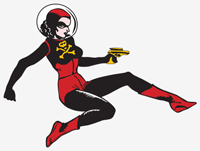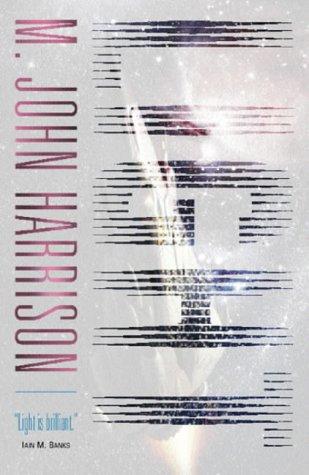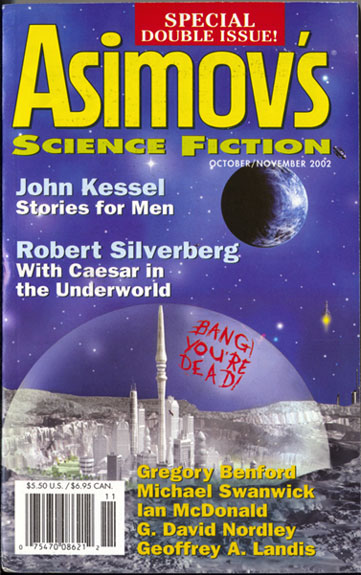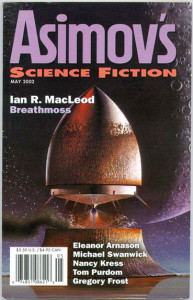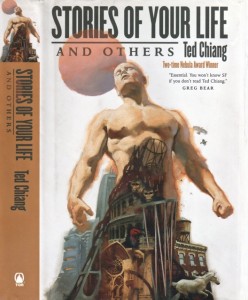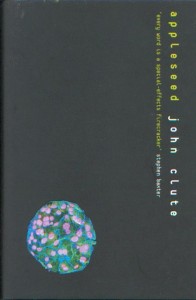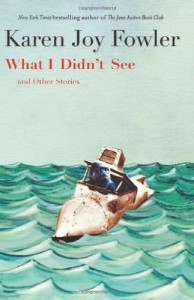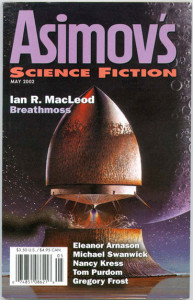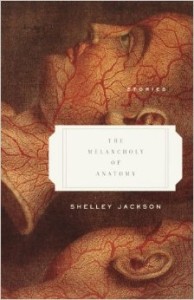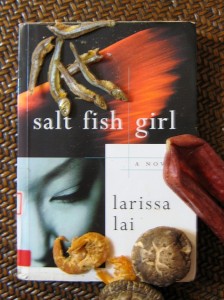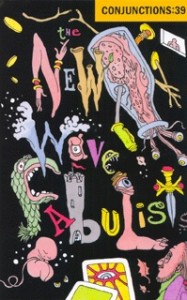The Otherwise Award is pleased to announce that the award ceremony for the 2002 Otherwise Award winner(s) has been held, and the winners have received their award and accolades.
Award Information
Conference Information
- Award Year: 2002
- Award Year Number: Year 12
- Conference: WisCon 27
- Date: 25-05-2003
- Location: Madison, WI
Award Sections
Award Winners
The 2002 jury chose 2 works for the Otherwise Award.
Light is a stunning work that’s part space opera and part Something Else. Some of us found the protagonists (a physicist and serial killer; a mass-murdering pirate; a VR addict) to be unlikable; others found them brutal, cruel, self-deluded, but completely real, people about whom we cared deeply. All the characters are shaped in ways that very specifically have to do with the structuring and exploration of gender. The male characters are in love with ostentatious masculinity as a thing that’s sometimes joyful and sometimes horrifying; the female characters are often consumed with fierce denial of their bodies and their own femaleness. Hanging over all of this is the enigmatic figure of the Shrander, whose gender identity, like so much else, is ambigous and complicated. Light is rich, horrible, sad, and absurd, and says a lot about how the body and sex inform one’s humanity. It will reward rereading. “Stories for Men” is a story about masculinity, about how individuals define themselves in the context of kinship and community, and about how we construct gender roles by telling ourselves stories. The story begins with a female-centered society that mirrors some of our assumptions about social power relations between men and women, and then explicitly refers to our own society’s assumptions (in the main character’s encounter with a twentieth-century fiction anthology) in a way that makes those assumptions seem new and strange. It reexamines those tales of outcasts and lone heroes and manly individualism within the context of a story of community. It raises questions about the links between connectedness and exclusion, consensus and stifling conformity, patriarchal protectiveness and sociopathy. “Stories for Men” is a short work, one that’s more subtle than it first appears.Light, Kefahuchi Tract Trilogy Book 1, by M. John Harrison (Victor Gollancz, 2002)
Work Information
Title: LightAuthor: M. John HarrisonSeries:
Series Title: Kefahuchi Tract TrilogySeries Number: 1Publisher:
Publisher Name: Victor GollanczCountry: UKYear: 2002Stories for Men by John Kessel (, )
Work Information
Title: Stories for MenAuthor: John KesselCollection:
Title: Isaac Asimov's Science Fiction Magazine October-November 2002Editor: Gardner Dozois
Award Honor List
See full details about the 2002 Honor List
The 2002 jury chose 8 works for the Honor List A story that explores the boundaries of personal identity, and the relationship between personal identity and gender, in the context of a culture where the basic unit of identity is a “team” rather than a single biological individual. This story presents what’s literally a different way of thinking. It makes the familiar (perception of beauty) seem strange, and makes what we normally consider necessary seem contingent. It doesn’t deal directly with gender, but rather works by implication: it raises questions about how many of our ideas about gender are tied in to contingent habits of thought. An homage to science fiction, with barely a trope untouched. Sexuality and sexual imagery are central to the book, which shuffles through the implications of dimorphism and dualism as components of human thought and experience. In dialogue with the Tarzan stories and with Tiptree’s “The Women Men Don’t See”, this story examines gender and heterosexual attraction within the frame of an emerging feminist and ethical consciousness. Not eligible for the Tiptree Award, because the author is one of the founding mothers. This coolly told story is in large part about the way women (and men) are treated in the maquiladoras of Juarez. It explores several kinds of power relationships: dispossession, complicity in institutional oppression, the blindness of well-meaning individual help, the self-image of masculinity as a mark of colonial identity. A collection of thematically linked short stories that, taken together, form a unified whole: surrealist play on sexuality, gender, and the body. A beautifully written novel about class and female identity. Salt Fish Girl draws on Chinese mythology, and is simultaneously fantasy and science fiction. Many of the stories in this anthology deal with gender issues in one way or another. Some of the most interesting stories are the ones by John Crowley, Elizabeth Hand, Nalo Hopkinson, Kelly Link, James Morrow, and Paul Park.Knapsack Poems, Eleanor Arnason
Liking What You See: A Documentary, Ted Chiang (Tor, US, 2002)
Appleseed, John Clute (Orbit, UK, 2001)
Special Honor
What I Didn't See, Karen Joy Fowler (SciFi.com)
Madonna of the Maquiladora, Gregory Frost
The Melancholy of Anatomy, Shelley Jackson (Anchor Books, US, 2002)
Salt Fish Girl, Larissa Lai (Thomas Allen & Son, Ltd., Canada, 2002)
Conjunctions 39: The New Wave Fabulists, Peter Straub, Bradford Morrow (eds.) (Bard College, US, 2002)
Jurors
- Matt Austern (chair)
- Jae Leslie Adams
- Molly Gloss
- Farah Mendlesohn
- Mary Anne Mohanraj
Award Ceremony
See full details about the 2002 Ceremony
The 2002 Otherwise Award was given to M. John Harrison and John Kessel at WisCon 27, May 25, 2003, in Madison, Wisconsin.
